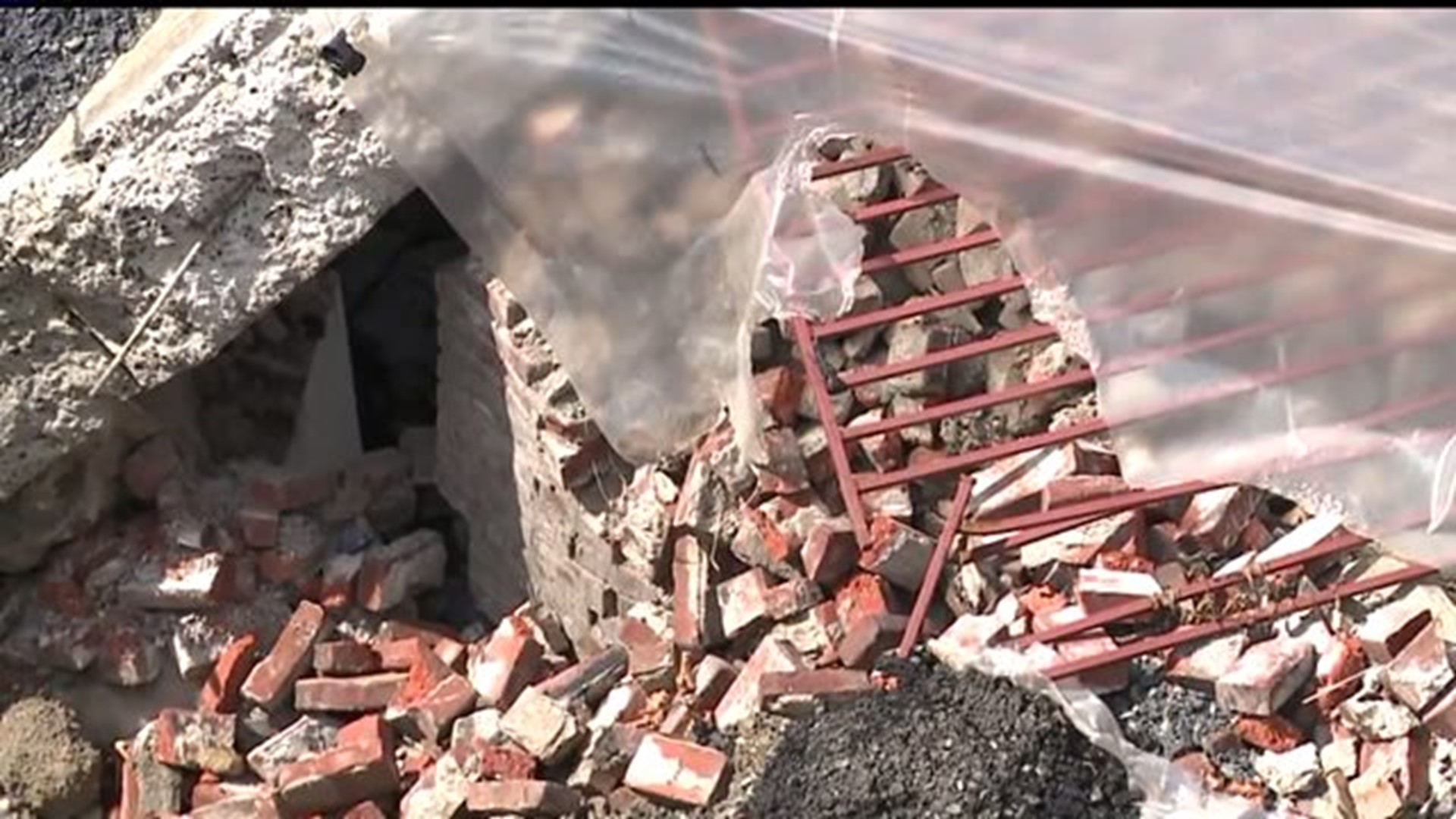HARRISBURG, Pa. - It's been more than four months since a wall adjacent to the Mulberry Street Bridge collapsed, and with no resolution in sight, the owner of the tire shop where much of the debris from the collapse fell is ramping up preparations for the winter months.
"One of our greatest problems is that all the water that runs off that hill when it rains comes through my building and drowns us," Howard Henry, owner of Howard Tire & Auto, said.
The water collects on the floor of his warehouse when it rains, and seeps down into his shop.
"We're still in a place where we can't do anything to that hill at all until somebody takes responsibility for it," he said.
The warehouse was condemned by the city in June, along with the McFarland building at the top of the hill, although that was appealed by the owners of the McFarland.
The condemnation was supposed to set the stage for a hearing to be held by the city's Building and Housing Code Board of Appeals last week, but it had to be postponed because only two members of the board showed up and a minimum of three were needed for the hearing to go on. Two other members had excused absences, and the fifth seat on the board is vacant.
"I just don't know how you enforce something and issue fines and say there's a hearing on September 15th and not take the steps to be prepared for that hearing," Henry said, frustrated about the bureaucracy.
Efforts by FOX43 to reach several city officials Tuesday were unsuccessful, and many questions continue to remain unanswered about how to resolve the issue.
"I'm just at this place where I'm looking around and I'm wondering if I have to go through the winter like this," Henry said. "And everyone's okay with it, except me, of course."
And that's why he's taking matters into his own hands.
A few weeks ago, Henry began work on a modified drainage system of sorts that may be the best bet to limit further weather damage as the seasons change.
With a team of employees and volunteers, he stabilized the roof and devised a plan to collect runoff from any precipitation this winter. The plan is to use rubber to cover the debris pile.
"Off that hill, we're going to lay the rubber and it's going to look like a great big funnel washing the water right straight into this," he said, pointing to a structure that looks like an oversized gutter.
That gutter will carry precipitation that lands on the collapsed area to a ten-inch pipe, which leads to a storm drain.
It's a project that he says has set him back tens of thousands of dollars, and he's unsure if he will ever be able to recoup that money. One positive development is that Henry's insurance provider is finally working with him after it denied his initial claim. It opted to review its decision after the second collapse at the site.
It's also unknown how long it will take to ultimately resolve this.
"I'm told that it could be years," he said, pausing. "It's really hard to wrap my head around years."

